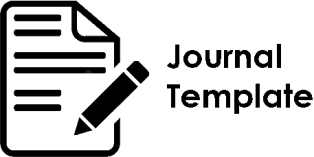Al-Ghazali's Thoughts on Education and Its Relevance to Islamic Education in the Millennial Era
DOI:
https://doi.org/10.29240/ajis.v6i1.2091Keywords:
Al-Ghazali, Islamic Education, Millennial EraAbstract
Downloads
References
Adu, La. “Pandangan Imam Al-Ghazali Tentang Pendidikan Akhlak Di Lingkungan Keluarga.†Horizon Pendidikan 10, no. 2 (January 9, 2019). https://www.jurnal.iainambon.ac.id/index.php/hp/article/view/707.
Alwizar. “Pemikiran Pendidikan Al-Ghazali.†POTENSIA: Jurnal Kependidikan Islam 1, no. 1 (June 2, 2015): 129–49. doi:10.24014/potensia.v1i1.1245.
Arikunto, Suharsimi. Prosedur Penelitian Suatu Pendekatan Praktek. Jakarta: Rineka Cipta, 2002.
Darman, Flavianus. Undang-Undang Republik Indonesia Nomor 20 Tahun 2003 Tentang Sistem Pendidikan Nasional. Jakarta: Transmedia Pustaka, 2007.
Fadli, Adi. “Konsep Pendidikan Imam Al-Ghazali Dan Relevansinya Dalam Sistem Pendidikan Di Indonesia.†El-Hikam 10, no. 2 (2017): 276–99.
H. M. Asyari. Konsep Pendidikan Islam Implementasinya Dalam Tradisi Klasik Dan Propogasi Modern. Jakarta: Rabbani Press, 2011.
Hadi, Sutrisno. Metode Research I. Yogyakarta: Andi Offset, 1997.
Kamalia, Nu’tih. “Konsep Ilmu Pendidikan Menurut Imam Al-Ghazali.†At-Ta’dib 10, no. 1 (January 26, 2016). doi:10.21111/at-tadib.v10i1.335.
Miftah, Zaini. “Warisan Metode Pendidikan Islam Untuk Generasi Millennial.†Al Ulya : Jurnal Pendidikan Islam 4, no. 1 (April 15, 2019): 72–94. doi:10.36840/ulya.v4i1.212.
Muhadjir, Neong. Metodologi Penelitian Kualitatif. Yogyakarta: Rake Sarasin, 1992.
Mukromin. “Pemikiran Imam Al-Ghazali Dalam Pendidikan Islam.†PARAMUROBI: JURNAL PENDIDIKAN AGAMA ISLAM 2, no. 1 (October 5, 2019): 33–42. doi:10.32699/paramurobi.v2i1.814.
Musfioh, Imroh Atul. “Pemikiran Pendidikan Islam Perspektif al-Ghazali.†SYAMIL: Jurnal Pendidikan Agama Islam (Journal of Islamic Education) 2, no. 1 (June 1, 2014): 14. doi:10.21093/sy.v2i1.493.
Muzakki, Jajang Aisyul. “Pemikiran Al-Ghazali Tentang Ganjaran Dan Hukuman Dalam Pendidikan Islam.†AWLADY : Jurnal Pendidikan Anak 3, no. 1 (February 28, 2017). doi:10.24235/awlady.v3i1.1253.
Nata, Abuddin. Sejarah Pendidikan Islam. Jakarta: PT. Raja Grafindo Persada, 2004.
Nazir, Moh. Metode Penelitian. Jakarta: Ghalia Indonesia, 2003.
Purwinto, Nanang. Pengantar Pendidikan. Yogyakarta: Graha Ilmu, 2014.
Rahmawati, Miya. “Mendidik Anak Usia Dini Dengan Berlandaskan Pemikiran Tokoh Islam Al-Ghazali.†Al Fitrah: Journal Of Early Childhood Islamic Education 2, no. 2 (January 1, 2019): 274–86. doi:10.29300/alfitrah.v2i2.2271.
Rohayati, Enok. “Pemikiran Al-Ghazali Tentang Pendidikan Akhlak.†Ta’dib: Jurnal Pendidikan Islam 16, no. 01 (2011): 93–112. doi:10.19109/td.v16i01.56.
Soejono and Abdurahman. Metode Penelitian Suatu Pemikiran Dan Penerapannya. Jakarta: Rineka Cipta, 1999.
Solihudien, Yusep. Strategi Melesatkan Trio Raksasa Kecerdasan Anak. Jawa Timur: Qiara Media, 2020.
Suban, Alwan. “Konsep Pendidikan Islam Perspektif Al-Ghazali.†Idaarah: Jurnal Manajemen Pendidikan 4, no. 1 (June 21, 2020): 87–99. doi:10.24252/idaarah.v4i1.13760.
Tambak, Syahraini. “Pemikiran Pendidikan Al-Ghazali.†Al-Hikmah: Jurnal Agama Dan Ilmu Pengetahuan 8, no. 1 (2011): 73–87.
Tirtarahardja, Umar, and La Sulo. Pengantar Pendidikan. Jakarta: PT Rineka Cipta, 2005.
Ulum, M. Miftahul. “Konsep Pendidikan Anak Menurut Al-Ghazali dan Relevansinya dengan Arah dan Tujuan Pendikan Nasional di Indonesia.†At-Ta’dib 4, no. 2 (September 1, 2009). doi:10.21111/at-tadib.v4i2.592.
Umar, Bukhari. Ilmu Pendidikan Islam. Jakarta: Amzah, 2011.
Zainudin, Muhammad. Karomah Syaikh Abdul Qodir Al-Jailani. Yogyakarta: Pustaka Pesantren, 2004.
Downloads
Published
How to Cite
Issue
Section
Citation Check
License
Authors who publish with this journal agree to the following terms:- Authors retain copyright and grant the journal right of first publication with the work simultaneously licensed under a Creative Commons Attribution License (CC BY-NC-SA 4.0) that allows others to share the work with an acknowledgment of the work's authorship and initial publication in this journal.
- Authors are able to enter into separate, additional contractual arrangements for the non-exclusive distribution of the journal's published version of the work (e.g., post it to an institutional repository or publish it in a book), with an acknowledgment of its initial publication in this journal.
- Authors are permitted and encouraged to post their work online (e.g., in institutional repositories or on their website) prior to and during the submission process, as it can lead to productive exchanges, as well as earlier and greater citation of published work (See The Effect of Open Access).







